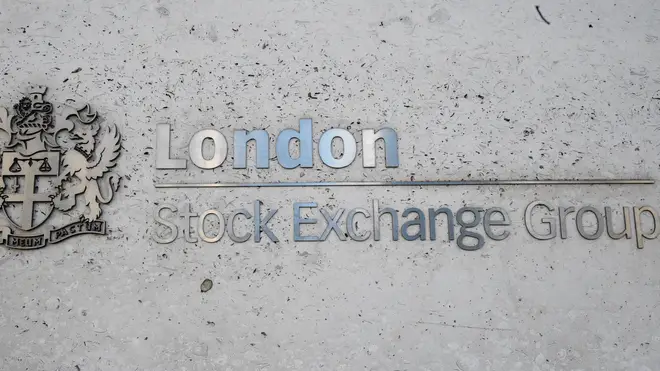
Ian Payne 4am - 7am
14 September 2021, 17:24

Analysts said that investors are worried about price inflation
If shares on Monday looked like they might be bouncing back from last week’s bruising performance, Tuesday dented any such hopes.
In the City, the FTSE 100 index pushed at one point hitting as low as 7,020 points.
It ended at 7,034, a 34.37-point drop, or 0.5% lower.
“Having got off to a positive start yesterday, today’s price action looks set to follow the pattern of last week, where after a similar Monday rally, sentiment deteriorated as concerns about profit margins in the face of rising prices saw certain sectors come under further pressure,” said CMC Market analyst Michael Hewson.
In the US, inflation – measured by the Consumer Prices Index (CPI) – showed that prices had increased by 5.3%, lower than had been expected.
Mr Hewson said: “Bond yields have also come under pressure over concerns that the weak US CPI number has been driven by demand deterioration, thus raising concerns about the global recovery story as we head into the fourth quarter.”
The FTSE 100 has been troubled for most of the last month and looks like it could soon fall through the 7,000-point mark for the first time since July.
The index is showing a persistent refusal to bounce back from the Covid-19 pandemic.
In New York, the Dow Jones index passed its pre-pandemic levels in November last year and the S&P did the same in August 2020, over a year ago.
In Europe, the Frankfurt-based Dax topped its pre-pandemic score in January, while Paris’s Cac 40 surpassed it in March.
All four indexes have continued rising since these points as well.
But London’s top index has taken a different path, not being able to hold onto any progress it has made since around April this year, when it passed the 7,000-point mark for the first time since the pandemic began.
The index is also far behind the around 7,650 points it had before the pandemic hit markets.
On Monday, it was travel stocks and natural resource companies that led the way lower. British Airways owner IAG, and miners Evraz, BHP and Rio Tinto, all made it into the index’s bottom 10.
“Uncertainty over the relaxation of UK travel rules continue to weigh on a sector that will now have to wait until next year, after another disappointing summer season,” Mr Hewson said.
On Tuesday morning, travel association Abta said that new bookings were 83% below 2019.
On currency markets, sterling was down less than 0.1% against both the euro and the dollar. By the end of trading in London one pound could buy 1.3843 dollars or 1.171 euros.
The S&P 500 was down 0.2% and the Dow Jones down 0.5% at the same time. In Europe, the Dax rose 0.1% while the Cac 40 closed down 0.4%.
The cost of Brent crude oil rose by a quarter of one per cent to 73.69 dollars per barrel.
The pension trustees of Morrisons and its suitor in a £7 billion takeover reached a deal, the parties announced on Tuesday, yet shares were unaffected.
For JD Sports, Tuesday’s news was much more transformative. Its shares closed up 9.7% after a record opening half of a financial year.
It turned a £42 million pretax profit in the first six months of 2020 into £365 million in the six months to the end of this July.
It upped the profit outlook for the full year by £150 million to £750 million as a result.
For furniture seller Made, a warning that supply chain problems will persist into next year sent shares plummeting 6.5%.
The biggest risers on the FTSE 100 were JD Sports, up 102p to 1,151p, B&M, up 13.2p to 592p, Entain, up 38.5p to 1,943.5p, SSE, up 27.5p to 1,659p, and Next, up 132p to 7,984p.
The biggest fallers on the FTSE 100 were IAG, down 6.2p to 142.1p, United Utilities, down 25.2p to 585.8p, Johnson Matthey, down 93p to 2,763p, Anglo American, down 96.5p to 2,996.5p, and BT, down 4.2p to 155.55p.